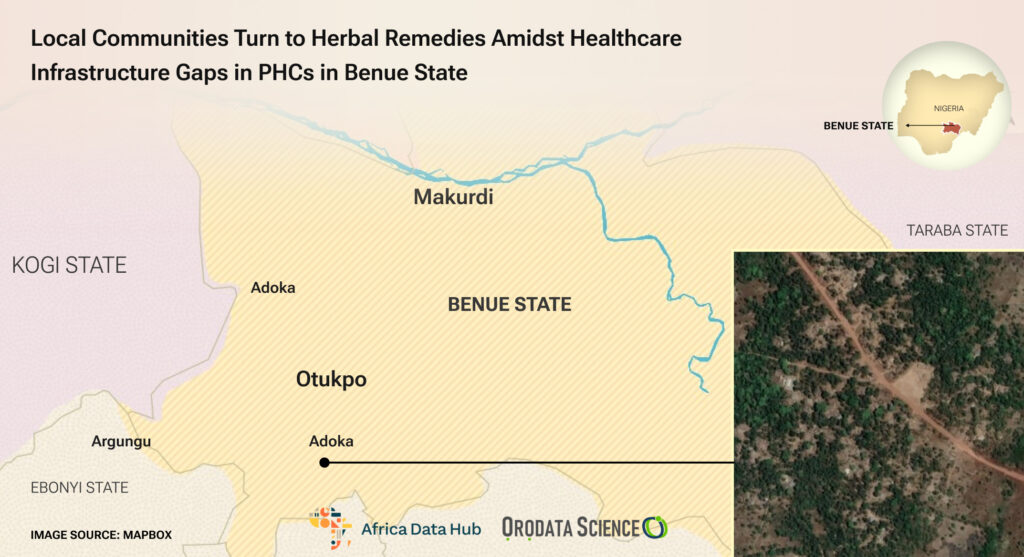Residents in local communities confronted by the challenges posed by the ailing public health infrastructure are turning to herbal remedies as the last resort to cater for their health needs.
“I switched off to herbal remedies as a preference over PHCs.” The noticeable decline has prompted Ola to shift her preference towards herbal remedies over PHCs. The decision is based on the factors of availability, affordability, and accessibility of herbal treatments at any given time. Beyond these considerations, Ola values the historical effectiveness of herbal recipes, which have stood the test of time and proved beneficial for previous generations.
“The PHC in the community faces various challenges, including a shortage of healthcare personnel, insufficient operational space, and prolonged deficits in essential medicines to cater for the immediate health needs of the people in rural communities. These gaps over time have influenced my inclination towards herbal remedies, Ola noted.”
Despite seeking care at the local health outpost on numerous occasions for herself and her family, Ola expressed disappointment as the facility often falls short of expectations in meeting the increasing health needs of the local communities.
.
Monday Ogbu from Onuebo Ijigban community, Ado LGA echoed a similar sentiment as Ola, expressing concern over the absence of basic commodities and health workers at the health outpost. The recurring closure of the facility has compelled local residents to turn to herbal remedies as a temporary solution.
“If I could recall, sometimes last year, on May 24, 2023, I felt sick and went to the health outpost here in the community but met nobody to attend to me. I put a call through to the officer in charge just to confirm my presence and need to get treated, but he disclosed to me that the facility had been without essential drugs for several weeks. I felt so sad with dashed hope of getting well so soon, Ogbu added”
“In my plight, a friend directed me to a place where I could buy herbal medicine, to which I obliged. After taking the herbal preparation for five days, I experienced a significant improvement in my health. This situation is not peculiar to me alone, as many others in the community share similar experiences of discouragement from accessing the health facility due to its limitations, opting instead for herbal medicines to address their health challenges, Ogbu said”
The health post in the community is as good as none due to a continued infrastructural deficit, stock out among others, said Ojone Onuh, a farmer in Obinda community, Apa LGA. I have lived here for close to twenty years, and it seems that the health care facility keeps deteriorating by the day.
“As a farmer, one of the things I do not play with is my health and that of my family. I do appreciate sitting up the health outpost in the community, but the honest truth is that I have lost interest in their services. My preference at the moment is herbal medications, Onuh stressed.”
“If I could recall, on several occasions when either me or any members of my family felt ill, seeking treatment at the health facility came with excuses such as a stock out of basic medications or the absence of health personnel on duty at critical times. This has played out not just once but several times. This very action has made me settle for herbal medication as a viable option to stay healthy, Onuh added.”
“One of the most glaring parts of what informed my decision for herbal medication was the ordeal of my last daughter, Mary Onuh. On Tuesday, August 8, 2023, Mary, on our way back from the farm, kept complaining of stomach aches with excruciating pains. I rushed her to the health facility with the hope of getting a remedy, but met a closed health facility. All efforts to reach out to the health officer in charge proved abortive, while at that point I took her to a private health facility, and she still could not get the needed medication. At this point, someone advised me to seek an herbal remedy, Onuh said”
“I heeded the advice and got the herbal medication for Mary, which she took for a week and got well. Since this incident, I have made up my mind to settle for herbal medicines as a viable option for catering to the health needs of my family, Onuh added.”
“’As it stands right now, herbal medicine is gaining popularity as the locals see it as the best substitute rather than conventional treatment at the health facility. The reason for the choice is simply because of the accessibility, availability, and affordability of the herbal preparation, Onuh reiterated.”
“The locals are gradually returning to herbal remedies as the last resort to address the lapses in the healthcare system, especially at the PHCs and health outpost, which are not living up to their expectations in meeting the health needs of the people, Eleigwu noted.”
“At a moment, a good number of community members are using herbal medicines as an alternative to conventional health services for their treatment and care. This trend is a clear pointer for urgent action for the government to step up action with focus at the primary level of healthcare in revamping the healthcare system, engaging more health professionals, and creating a system for prompt supply of health commodities to meet the ever-increasing population and health needs of the local community, Eleigwu added.”
This story was produced for the Frontline Investigative Program and supported by the Africa Data Hub and Orodata Science

